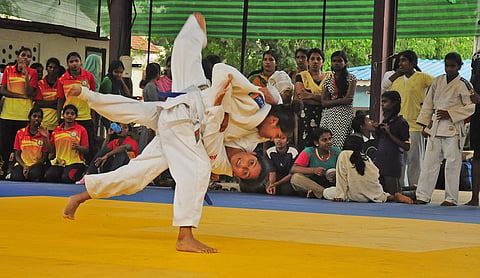

Stressing the importance of sports and physical activities, the Supreme Court, on April 26 sought the opinion of states on its suggestion to include at least 90 minutes of "games and free play" by all the education boards in the daily school hours. It also suggested that physical literacy or sports be recognised as a fundamental right.
The suggestion was given by a Bench comprising Justices L Nageswara Rao and BR Gavai, who stated that sports was not seen as a career option by students and more people were needed like VVS Laxman who had chosen cricket as his career, despite being born to doctor parents. A PTI report noted that the Justices stated that involving students in physical activities was important because otherwise they would end up spending more time on screens. The Bench also said that the opinion of states was essential in the matter, as just passing a judgment would not help the cause.
The decision comes in the wake of a PIL filed by a sports teacher Kanishka Pandey through senior advocate Gopal Sankarnarayanan, who was appointed as an amicus curiae in the case. The PIL had been filed in March 2022, seeking that physical literacy be considered a fundamental right and had sought directions from the apex court to ensure sports education in India. It had also urged that education and sports not be considered separate and that physical literacy be recognised as a part of the curriculum.
Gopal Sankarnarayanan had then filed a report stating various aspects relating to constitutional principles and sports, and had mentioned a slew of implementable directions in it. One of the suggestions in the report had been to ask the Centre to establish the National Physical Literacy Mission (NLPM) by establishing and implementing a responsibility matrix that includes curriculum design, compliance monitoring, and review, grievance redressal and self-correction mechanisms. And another suggestion had been made that the Ministry of Education could be directed to form a committee of senior officers from key-line ministries and experts to look into the matter.
